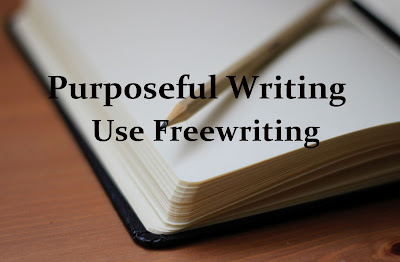Where did the summer go?? I just can’t believe it’s already August. The fall semester of teaching starts up for me again in just two weeks. It seems like I can close my eyes and it is the beginning of summer again, when the fireflies were just starting to appear and a long path of sunny days stretched out before me. What happened?? Where did it all go?
Do you ever get those same feelings? It floors me how quickly time passes! Sometimes it feels like time is a river rushing past me so fast and I’m sitting there in a little boat, struggling to get a grip on the oars, not even enjoying the beautiful scenery flowing past. It makes me feel overwhelmed and frustrated, like I’m wasting or not appreciating enough the most precious commodity we all are gifted with:
time.
I am also guilty of something I’ve come to think of in myself as
productivititus: trying to fit waaaaaay to much into my
daily to-do list, and then feeling like a failure when I don’t accomplish everything I’ve set out to do. This is not a good habit because I don’t want my summer, or my life, to be nothing but a giant to-do list of tasks I’m checking off. As my idol John Wooden often said, the most important words in the English language are
love and
balance. Work is important, but so is time for play! Balance, balance, balance is so crucial.
Something that is helpful to me when I am feeling off-balance, especially by the incredibly fast-flowing river of time, is to go to a quiet corner of the room and spend a few minutes
freewriting.
I always use freewriting in the creative writing courses I teach to help students break through writer’s block. However, I think freewriting is something that can benefit everyone! It is such a great tool for not just writing, but also your mental health, sense of empowerment, and overall happiness.
Here’s how freewriting works: set a timer for a certain amount of time — I’ve found
8 minutes works well because it’s not too long or too short — and start writing. The only rule is that you cannot stop until the timer dings! It is a tool to keep you from self-editing or second-guessing or worrying that what you are writing is not “good” enough. Instead, just let the writing pour out of you. You will find yourself tapping into your
subconscious, which can help you unlock all sorts of dreams and ideas and even solve problems that are nagging you. For me, freewriting is a way to re-find my center of balance. It
unclutters my mind and makes me feel at peace.
You don’t need a fancy journal or expensive pen to freewrite. All you need is a blank piece of paper — even scrap paper works! Some people like to freewrite on the computer, which is certainly all right. I personally enjoy using a pen and paper because it makes the writing feel more open and less intimidating somehow — more unharnessed. Something that is just for me.
Here are some
freewriting topics I’ve been using lately as jumping-off points:
- My favorite memory I made this summer was …
- Three things I am grateful for in this moment are …
- I will wring out every last drop of fun from my last couple weeks of summer by …
What are your plans for these final weeks of summer? Does anyone else use freewriting as a way to alleviate stress and find balance? Any other tips or suggestions for slowing down the pace of life and savoring the time we are blessed with?
 Dallas Woodburn is the author of two award-winning collections of short stories and editor of Dancing With The Pen: a collection of today's best youth writing. Her short fiction has been nominated for the Pushcart Prize three years in a row and her nonfiction has appeared in a variety of national publications including Family Circle, Writer's Digest, The Writer, and The Los Angeles Times. She is the founder of Write On! For Literacy and Write On! Books Youth Publishing Company and is currently pursuing her Master's degree in Fiction Writing at Purdue University, where she teaches undergraduate writing courses and serves as Fiction Editor of Sycamore Review. Many of her short stories are compiled online here.
Dallas Woodburn is the author of two award-winning collections of short stories and editor of Dancing With The Pen: a collection of today's best youth writing. Her short fiction has been nominated for the Pushcart Prize three years in a row and her nonfiction has appeared in a variety of national publications including Family Circle, Writer's Digest, The Writer, and The Los Angeles Times. She is the founder of Write On! For Literacy and Write On! Books Youth Publishing Company and is currently pursuing her Master's degree in Fiction Writing at Purdue University, where she teaches undergraduate writing courses and serves as Fiction Editor of Sycamore Review. Many of her short stories are compiled online here.














